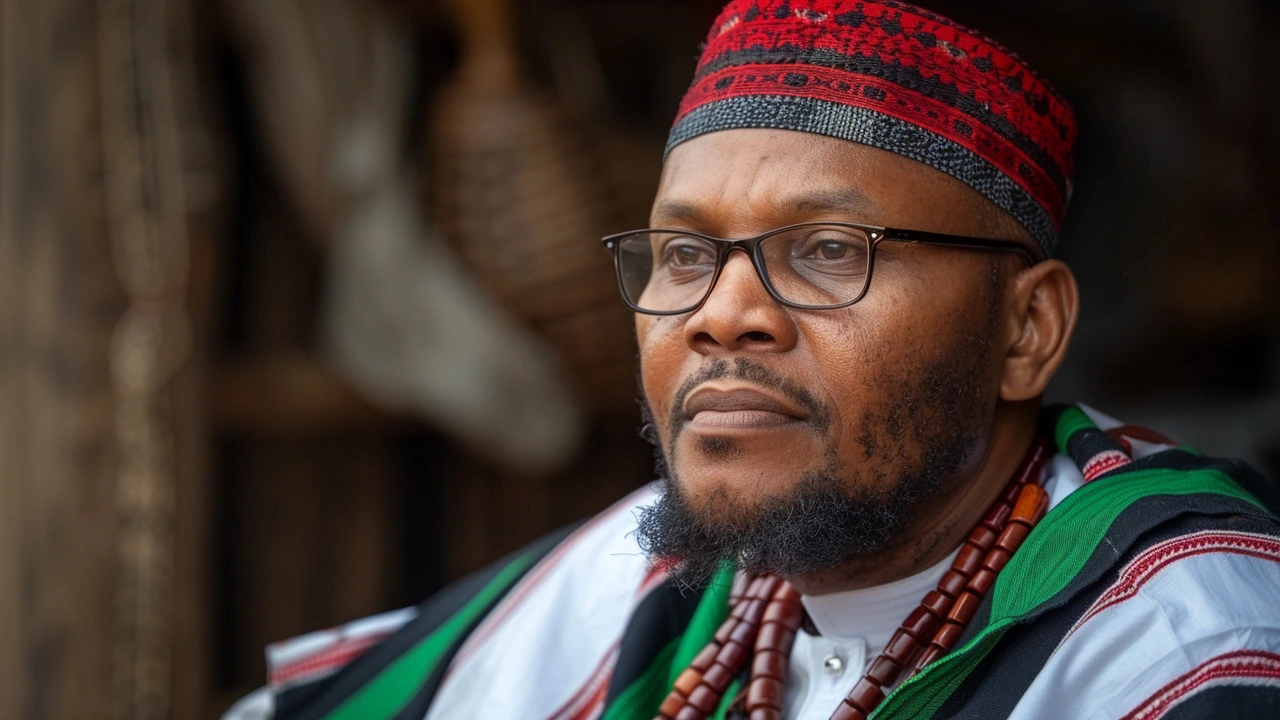South-East Representatives Rally for Nnamdi Kanu's Release
The political landscape in Nigeria's South-East region is undergoing a significant shift as the South-East caucus in the House of Representatives has officially endorsed the release of Nnamdi Kanu, the prominent leader of the Indigenous People of Biafra (IPOB). This endorsement comes in response to increasing calls for Kanu's freedom, reflecting the group's commitment to addressing the unrest and demands of their constituents.
Nnamdi Kanu's arrest and subsequent detention have been a central issue for IPOB and its supporters, who view him as a symbol of their struggle for self-determination. Kanu, who has been in custody for some time, is seen by many as the face of the Biafran independence movement. His release is a contentious topic, with strong opinions on both sides.
The decision by the South-East caucus is notable not only for its political implications but also for the potential impact on the region's stability. The members of the caucus argue that releasing Kanu could be a crucial step towards de-escalating the tensions that have plagued the area for years. They emphasize that this move is part of a broader strategy to promote peace and reconciliation.
The Genesis of Kanu's Detention
Nnamdi Kanu's journey from activist to detainee began with his vocal advocacy for Biafran independence. He founded IPOB in 2012, and the group quickly gained a substantial following, primarily among the Igbo people of Nigeria's South-East. Kanu's rhetoric and actions have often been deemed controversial by the Nigerian government, leading to his arrest on charges including treason.
Despite facing legal challenges, Kanu has remained a steadfast figure in the Biafran cause. His detention has been a rallying point for IPOB supporters, who have organized numerous protests and demonstrations calling for his release. These activities have at times led to clashes with security forces, exacerbating the already volatile situation in the South-East.
Political Support and Public Sentiment
The South-East caucus's backing for Kanu's release is deeply rooted in the political and social dynamics of the region. The representatives recognize the significant influence that Kanu wields and the potential for his detention to fuel further unrest if left unaddressed. By advocating for his release, they hope to mitigate some of the frustrations and grievances of their constituents.
In addition to political maneuvers, public sentiment has played a vital role in shaping the caucus's stance. Many people in the South-East feel a profound connection to the Biafran movement and view Kanu as a hero. This widespread support places pressure on political leaders to respond to the demands of their voters. The caucus members' decision to endorse Kanu's release illustrates their responsiveness to public opinion and their commitment to representing the will of the people.
Potential Outcomes and Challenges
While the support for Kanu's release is strong within the South-East caucus, the path forward is fraught with complexities. The Nigerian government remains cautious, aware of the potential repercussions of releasing a high-profile figure like Kanu. Concerns range from the possibility of rekindling separatist sentiments to the fear of setting a precedent for addressing other detained activists.
Moreover, the release of Nnamdi Kanu is unlikely to be a silver bullet solution. The underlying issues driving the Biafran independence movement, such as economic marginalization and cultural identity, remain unresolved. The South-East caucus acknowledges that Kanu's release must be part of a broader dialogue and policy framework aimed at addressing these root causes.
Path to Peace and Reconciliation
Despite the challenges, the South-East caucus's call for Kanu's release represents a hopeful step towards peace and reconciliation. It opens the door for meaningful dialogue between the Nigerian government and IPOB, potentially paving the way for a peaceful resolution to the long-standing conflict. The caucus members believe that releasing Kanu could serve as a gesture of goodwill, signaling the government's commitment to addressing the concerns of the South-East region.
The South-East caucus's efforts align with broader initiatives to promote national unity and cohesion. Their advocacy for Kanu's release is part of a larger push to bridge divides and foster a sense of inclusion among Nigeria's diverse populace. The representatives emphasize that their ultimate goal is to create a more harmonious and inclusive society where all citizens can thrive.

Conclusion
In conclusion, the South-East caucus's endorsement of Nnamdi Kanu's release is a significant development in Nigeria's political landscape. It reflects the representatives' commitment to addressing the demands of their constituents and promoting peace in the region. While challenges remain, the caucus's stance provides a glimmer of hope for a more inclusive and harmonious future. As the situation unfolds, the actions of the South-East caucus will undoubtedly play a crucial role in shaping the path towards reconciliation and stability.

Write a comment